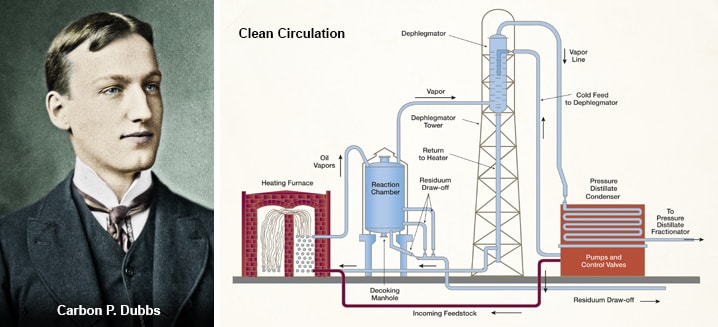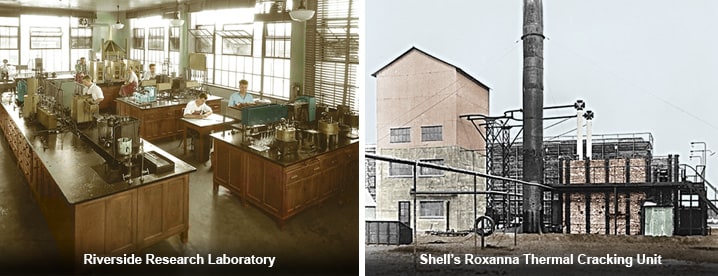Keep up with what’s new.
Connect with us on LinkedIn for news, insights and related topics.

Gasoline, which until then had been used as a solvent, had found favor as a fuel in internal combustion engines. With mass production of automobiles by Ford, General Motors and other car companies, these engines were being produced by the millions, generating strong demand for gasoline.
Jesse Dubbs retired in 1914 and died four years later. But Carbon Dubbs remained with the company to prove the efficacy of his father’s invention. While he did this, he spent most of his time on other projects, much to the displeasure of the company’s president Hiram J. Halle.
In 1919, the year the company changed its name to Universal Oil Products, Carbon Dubbs revealed his secret work – Clean Circulation, a refining method that improved on his father’s invention by circulating a quantity of refined gasoline back into the feedstock. For Halle, this meant a profound change in the company’s business.

No longer just a paper company formed to enforce patent rights, UOP now had a new and improved method for refining oil. Because UOP lacked the capital to become a refining company itself, Halle decided UOP should license the Clean Circulation process to any refiner in exchange for a royalty fee, based on production. For its part, UOP would engineer its customers’ refineries and guarantee performance. This would remain UOP’s business model for the next century.
In 1921, UOP established its Riverside research and development laboratory in present-day McCook, Illinois, as a focal point where the best and brightest scientists could create new products and provide scientific support for the oil refining industry.
Beginning with Shell’s Roxana refinery in Wood River, Ill. in 1922, UOP signed dozens of customers – initially in the United States, followed by Japan, China, India, Romania, the United Kingdom and The Philippines. The steadily rising income from these licensees helped to fund UOP’s legal action.
Connect with us on LinkedIn for news, insights and related topics.

Did you know that your internet browser is out of date?
Your browser is out of date, and may not be compatible with our website.
Just click on the icons to download a compatible browser.
By closing this window you acknowledge that your experience on this website may be degraded.